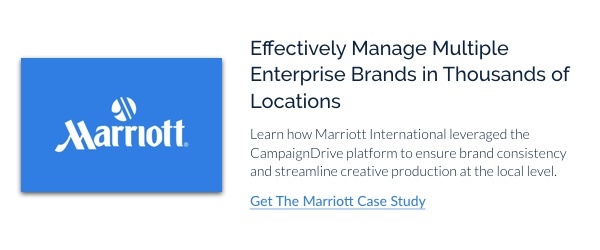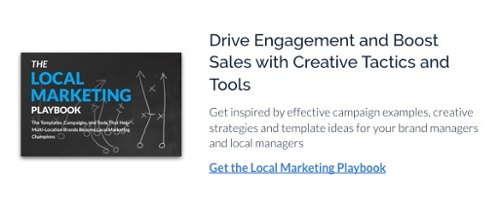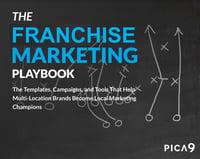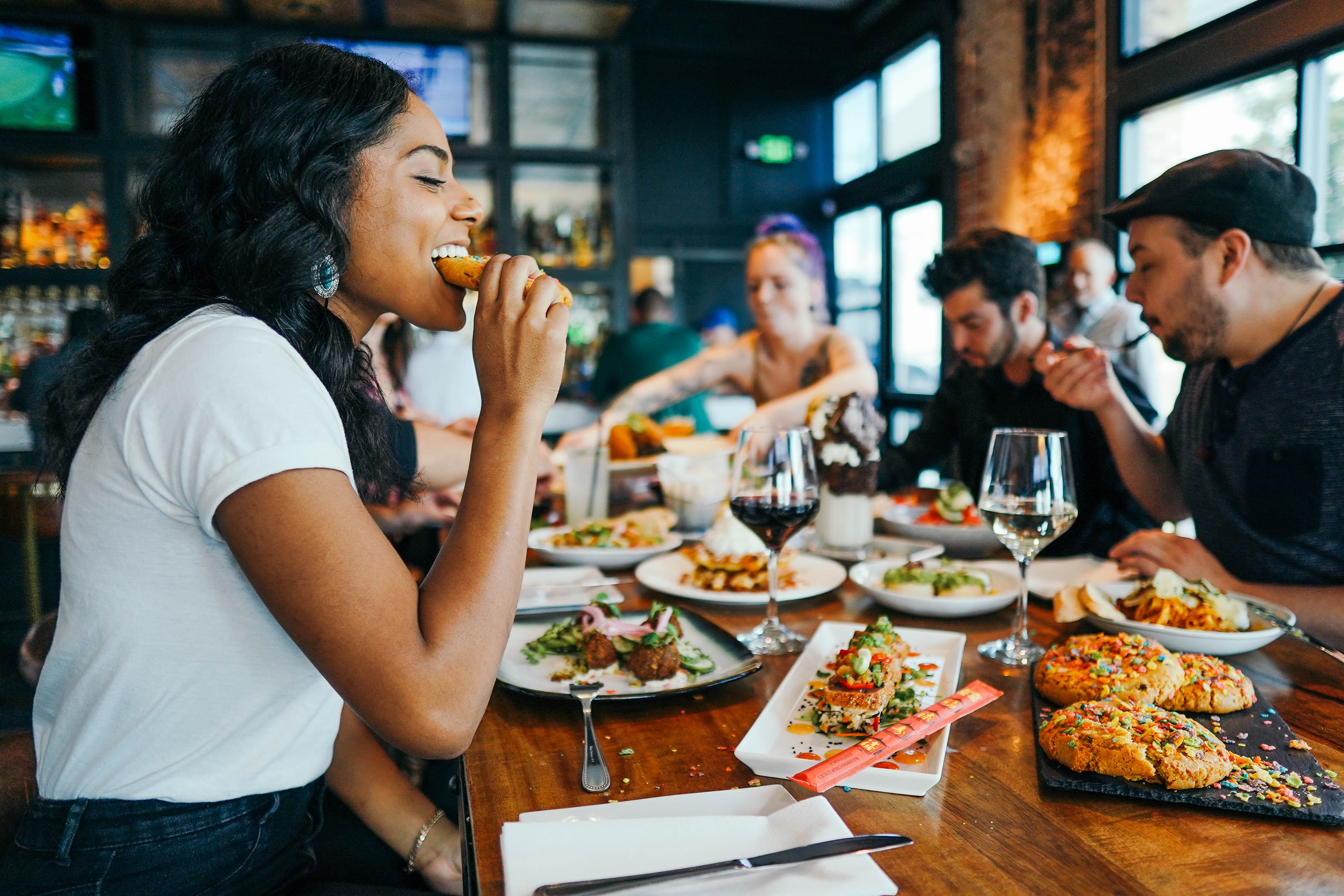The U.S. travel industry is one of the fastest-growing markets in the world.
According to recent reports, U.S. gross bookings grew from $116 billion to $185 billion in 2019, marking almost 10 years of consecutive growth. Moreover, in 2009, the U.S. Bureau of Labor Statistics estimated 353,000 job openings across the leisure and hospitality sector. As of 2019, with the travel industry surging, that number swelled to more than 1,139,000.
This year, market conditions are expected to remain strong, but significant operational challenges loom. Are your franchisees prepared?
Hotel Marketing in 2020: 5 Challenges Local Franchisees Face
As a recognized brand management software provider, we've worked alongside some of the world's leading luxury, boutique, and enterprise-class hotel franchises. We've seen first-hand the marketing challenges that hotel franchisees face and as a trusted multi-location brand marketing partner, have helped industry-leading brands solve for these and many other roadblocks.
Here are the most pressing hotel marketing challenges that franchisees face:
1. Traditional Marketing is Ineffective
This year, local marketers need to review traditional marketing strategies and measure the effectiveness of these channels as a means to engage prospects and customers. The very best hotel franchisees will look for marketing opportunities designed to bolster the customer experience. Additionally, corporate entities will look for opportunities to support their franchisees in this pursuit.
Try to think beyond traditional marketing channels for your franchisees. Here are some of the most promising digital marketing channels to experiment with:
- Virtual Reality (VR)
- Augmented Reality (AR)
- 360° Videos
- User-Generated Content
- Chatbots
Related: 6 Local Marketing Campaigns Consumers Love
2. Increased Influence From Online Travel Agencies
Recently, the American Hotel & Lodging Association unveiled a new campaign designed to spread the awareness about the "dangers" of booking a hotel through a third-party agency such as an online travel agency (OTA).
For years, OTAs and hotels existed harmoniously. However, in recent years, the commission rate for stays booked through OTAs has steadily risen. In fact, by June 2016, 27% of all U.S. hotel bookings were indirect, up from 23% two years earlier. Moreover, Priceline and Expedia can now afford to charge up to 30% commission. This has all taken a serious toll on hotels' bottom lines.
This year, to combat the increased influence of OTAs, your hotel brand must explore direct-booking campaigns to encourage loyalty signups.
3. Rising Customer Expectations
In 2015, American Express Travel reported that 83 percent of millennials would allow brands to track their habits in exchange for a more customized shopping experience. Additionally, Deloitte Consulting recently noted that "truly knowing your guests – what they have told you, what they request, what you have learned, and what should be implied – should yield higher results."
This year, customers will expect a certain level of personalization. As such, your brand managers must go out of their way to support franchisees in their personalization efforts. In this scenario, a brand management solution is ideal.
This tool enables brand managers to "lock" mission-critical features within the creative. Moreover, local affiliates can quickly insert personalization tokens such as first name, last name, and more.
Related: How to Use Local Marketing Automation to Create Personalized Print Campaigns
4. Limited Marketing Budgets
Most hotel brands assign fixed monthly budgets to campaigns, potentially restricting the effectiveness of marketing and reducing flexibility during high demand periods. Moreover, many franchisees do not allocate enough marketing capital to orchestrate high-value campaigns.
In this scenario, as a brand manager, it's your responsibility to talk to your franchisees about the importance of marketing. In many ways, the marketing activities can reflect positively or negatively against your brand equity. Additionally, you might even consider offering co-op marketing programs to incentivize your local affiliates to activate great campaigns.
5. Managing Marketing and Operations
As brand managers, we expect our local affiliates to manage day-to-day hotel operations on top of daily marketing activities. And for those local affiliates who aren't marketing aficionados, trying to both probably feels like a nightmare.
For those locals who don't have the "time" to do marketing, a brand management solution will help to expedite the entire process. In seconds, local affiliates can access brand creative, add a touch of localization, and publish – it's that easy!
Related: Going Local Creatively: How to Localize Creative to Improve Response Rates
Leading Hotel Franchises Partner With CampaignDrive
There's a reason why more hotel franchises choose to partner with CampaignDrive. For hospitality brand managers eager to deploy high-value marketing across the distributed network, a brand management solution like ours is ideal. Many industry-leading brands have already made considerable investments in brand management and if your franchise hasn't, it could be behind the curve.
To kickstart your brand management journey, we recommend trying a free demo.







